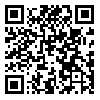BibTeX | RIS | EndNote | Medlars | ProCite | Reference Manager | RefWorks
Send citation to:
URL: http://jdisabilstud.org/article-1-1708-en.html
2- Islamshahr Branch, Islamic Azad University
3- Payame Noor University of Shiraz
4- Payam Noor University of Assaluyeh
Background & Objectives: Attention-Deficit Hyperactivity Disorder (ADHD) is one of the most common disorders in childhood and adolescence. Rearing a child with disabilities is often considered a stressor for the family and affects all its aspects, including family functioning. However, the concept of communication patterns has been considered to promote family functioning and health. Research suggests that psychosocial interventions can make parents more effective at improving their family's functioning, as well as reducing symptoms of ADHD in their children. In this regard, one of the most common therapies effective in this field that has received little attention from researchers is dialectical behavior therapy. This therapy is an approach that utilizes emotion regulation strategies to solve emotional and behavioral problems and emphasizes emotion training, acceptance, and accreditation in therapeutic interventions. The present study was conducted to determine the effectiveness of dialectical behavior therapy on family functioning and communication patterns of mothers of children with ADHD.
Methods: This study was a quasi-experimental study with a pretest-posttest design with a control group. The statistical population of the present study was all mothers of children with ADHD living in Baharestan City, Iran, during the academic year of 2018-2019. A total of 30 parents were selected by convenience sampling and randomly divided into the experimental (n=15) and control groups. The inclusion criteria included performing a 4-CSI questionnaire on mothers to screen for ADHD from other disorders with a score of 6, a clinical interview with a child psychiatrist or psychologist to diagnose the disorder, and mothers' literacy. We used parents of children with various ADHD disorders. The exclusion criteria comprised not participating in treatment sessions, participation of the mother in similar treatment sessions, a history of mental illness in the mother, and other concurrent disorders in the child such as mental retardation and psychotic disorders according to the child's record and psychiatrist diagnosis. The treatment sessions were based on Robbins et al. (2001) dialectical behavior therapy guide. The experimental group received dialectical behavioral therapy training interventions, but the control group did not receive training. The intervention comprised ten 60-min sessions, twice a week for five weeks. Family Assessment Device (Epstein et al., 1983) and Communication Patterns Questionnaire (Christensen & Sullaway, 1984) were used in the pretest and posttest stages. The collected data were described with descriptive statistics (mean and standard deviation). Data analysis was done by the univariate analysis of variance in SPSS 22 (α=0.05).
Results: According to the results, there was a significant difference between the experimental group and the control group in family functioning (p=0.008) and the communication patterns of mothers of children with ADHD, including the mutual constructive communication pattern (p<0.001), the mutual avoidance communication pattern (p<0.001), and the expectation/withdrawal communication pattern (p<0.001).
Conclusion: Based on the study results, dialectical behavior therapy is effective in improving family functioning, reducing mutual avoidance communication patterns and expectation/withdrawal communication, as well as increasing the constructive communication pattern in mothers of children with ADHD.
| Rights and permissions | |
 |
This work is licensed under a Creative Commons Attribution-NonCommercial 4.0 International License. |





